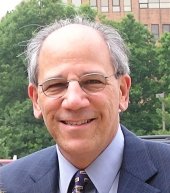
More Dental Health Articles
Complementary and Alternative Medicine 101
Surveys conducted by the Centers for Disease Control and the Center for Complementary and Alternative Medicine (part of NIH), have found that approximately 75% of adults in the U.S. have used some form of complementary and alternative medicine (CAM) over their lifetime.
Alternative Medicine 101
Alternative medicine is defined as any healing practice “that does not fall within the realm of conventional medicine” and is generally used independently or in place of conventional medicine when conventional medicine has not proved successful. These can include whole other medical systems, theories, and treatment practices, like ayurvedic medicine, traditional Chinese medicine, and homeopathy. Or simply other treatment modalities that are not conventional, like massage, acupuncture, chiropractic or nutritional therapy.
Complementary Medicine 101
Similarly, complementary medicine also encompasses any practice, like those described above, which is outside of conventional medicine. It is considered complementary versus alternative medicine when used in conjunction with (or to complement) conventional medical treatments.
Examples In Dentistry
If you suffer from TMJ, and none of the conventional dental treatments have provided permanent relief, your dentist might recommend you see a cranial-sacral therapist, a chiropractor, or an acupuncturist instead. Or he/she might suggest some form of stress management like yoga or tai chi. This would be an example of alternative medicine.
If you are being treated for periodontal disease your dentist might perform a deep cleaning in the office and instruct you about good oral hygiene at home to remove plaque and disrupt the biofilm. In addition, he/she might suggest certain foods and supplements to reduce inflammation, fight infection, and prevent bone loss. If so, this is an example of complementary medicine.
Another example of complementary medicine in the dental office would be the dentist's recommendation that you take antioxidants like vitamin C and CoQ10 to boost the immune system and accelerate the healing process after you have had major dental work and/or surgery.
Whether prescribed by another practitioner, or tried on your own, it is important to tell all your health care providers about any CAM practices you use. This will give them a full picture in terms of managing your health and will ensure coordinated and safe care, especially if you are taking supplements and are on medications.
To further ensure your safety, check into any CAM practitioner's training, experience, credentials and/or license and, if applicable, a product's quality and safety per its compliance with the standards and regulations established by the government.

















